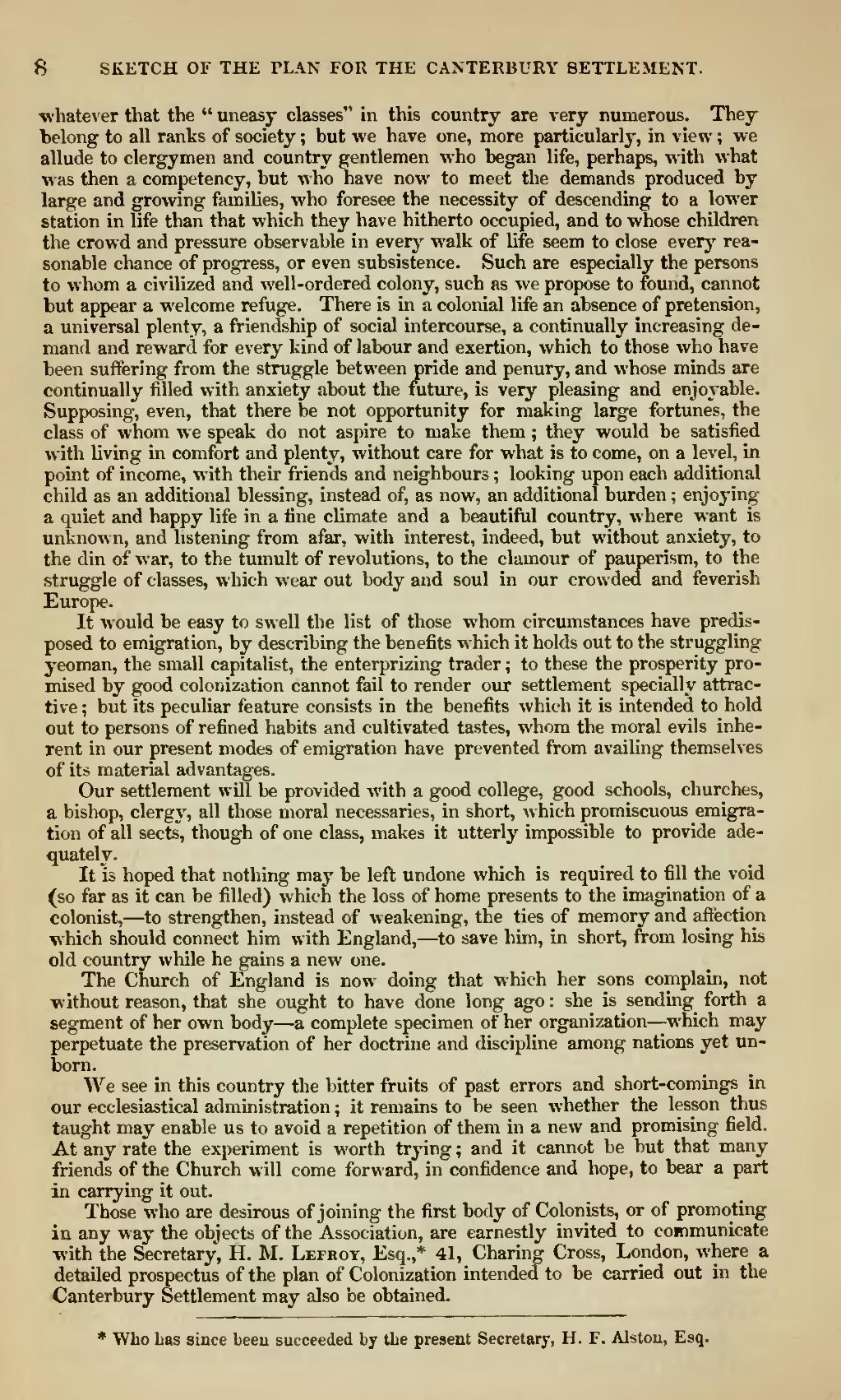whatever that the "uneasy classes" in this country are very numerous. They belong to all ranks of society; but we have one, more particularly, in view; we allude to clergymen and country gentlemen who began life, perhaps, with what was then a competency, but who have now to meet the demands produced by large and growing families, who foresee the necessity of descending to a lower station in life than that which they have hitherto occupied, and to whose children the crowd and pressure observable in every walk of life seem to close every reasonable chance of progress, or even subsistence. Such are especially the persons to whom a civilized and well-ordered colony, such as we propose to found, cannot but appear a welcome refuge. There is in a colonial life an absence of pretension, a universal plenty, a friendship of social intercourse, a continually increasing demand and reward for every kind of labour and exertion, which to those who have been suffering from the struggle between pride and penury, and whose minds are continually filled with anxiety about the future, is very pleasing and enjoyable. Supposing, even, that there be not opportunity for making large fortunes, the class of whom we speak do not aspire to make them; they would be satisfied with living in comfort and plenty, without care for what is to come, on a level, in point of income, with their friends and neighbours; looking upon each additional child as an additional blessing, instead of, as now, an additional burden; enjoying a quiet and happy life in a fine climate and a beautiful country, where want is unknown, and listening from afar, with interest, indeed, but without anxiety, to the din of war, to the tumult of revolutions, to the clamour of pauperism, to the struggle of classes, which wear out body and soul in our crowded and feverish Europe.
It would be easy to swell the list of those whom circumstances have predisposed to emigration, by describing the benefits which it holds out to the struggling yeoman, the small capitalist, the enterprizing trader; to these the prosperity promised by good colonization cannot fail to render our settlement specially attractive; but its peculiar feature consists in the benefits which it is intended to hold out to persons of refined habits and cultivated tastes, whom the moral evils inherent in our present modes of emigration have prevented from availing themselves of its material advantages.
Our settlement will be provided with a good college, good schools, churches, a bishop, clergy, all those moral necessaries, in short, which promiscuous emigration of all sects, though of one class, makes it utterly impossible to provide adequately.
It is hoped that nothing may be left undone which is required to fill the void (so far as it can be filled) which the loss of home presents to the imagination of a colonist,—to strengthen, instead of weakening, the ties of memory and affection which should connect him with England,—to save him, in short, from losing his old country while he gains a new one.
The Church of England is now doing that which her sons complain, not without reason, that she ought to have done long ago: she is sending forth a segment of her own body—a complete specimen of her organization—which may perpetuate the preservation of her doctrine and discipline among nations yet unborn.
We see in this country the bitter fruits of past errors and short-comings in our ecclesiastical administration; it remains to be seen whether the lesson thus taught may enable us to avoid a repetition of them in a new and promising field. At any rate the experiment is worth trying; and it cannot be but that many friends of the Church will come forward, in confidence and hope, to bear a part in carrying it out.
Those who are desirous of joining the first body of Colonists, or of promoting in any way the objects of the Association, are earnestly invited to communicate with the Secretary, H. M. Lefroy, Esq.,[1] 41, Charing Cross, London, where a detailed prospectus of the plan of Colonization intended to be carried out in the Canterbury Settlement may also be obtained.
- ↑ Who has since been succeeded by the present Secretary, H. F. Alston, Esq.
